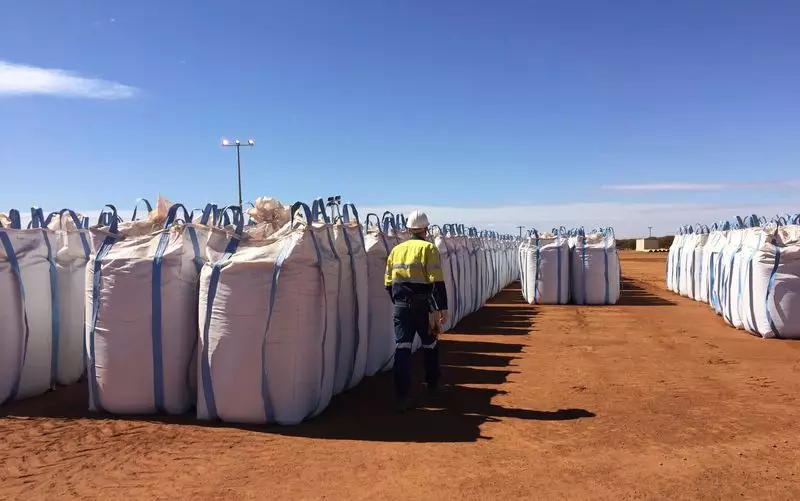One of the leading companies making efforts to reduce the West’s reliance on Chinese rare earths is Lynas Rare Earths. Lynas is currently the largest supplier of rare earth compounds outside of China, operating primarily in Australia. The company has processing operations in both Australia and Malaysia, with plans to open a heavy rare earth processing plant in Texas by fiscal 2026.
Belgium-based Solvay is also taking steps to increase its rare earth processing capabilities. The company aims to launch separation and production of rare earth oxides needed for permanent magnet production by 2025 at its La Rochelle operations in France. Solvay currently processes rare earths for various uses, such as auto catalysts, and has partnerships in place to explore manufacturing opportunities within the European supply chain.
Germany’s Vacuumschmelze is another major player in the rare earths market. The company, recently acquired by U.S. private equity firm Ara Partners, has secured significant government funding to build a neodymium-iron-boron magnet plant in South Carolina. This facility is expected to be operational by late 2025 and is poised to supply magnets to key players such as General Motors and the U.S. Department of Defense.
Less Common Metals, based in the United Kingdom, is actively involved in producing rare earth metals and alloys. The company is part of the European Supreemo project, which aims to establish a rare earths value chain within Europe. By participating in such initiatives, Less Common Metals is contributing to the diversification of the global rare earths supply chain.
Norwegian company REETEC, in partnership with Swedish miner LKAB, is working towards building a commercial rare earth separation plant set to begin production in 2025. By expanding rare earth processing capabilities, REETEC is helping to reduce the current dependence on Chinese imports for these critical minerals.
Another noteworthy player in the rare earths market is Australian mineral sands producer Iluka Resources. The company is in the process of constructing the Eneabba rare earths refinery in Western Australia, which will process heavy rare earths sourced from its own mines as well as from third-party suppliers. Iluka’s efforts have been supported by significant government funding, highlighting the importance of establishing local refining capabilities.
Posco International, based in South Korea, has partnered with Star Group to provide permanent magnets to German and U.S. automakers from 2025. These magnets will be sourced from various countries, including the U.S., Australia, and Vietnam. By collaborating with manufacturers and suppliers across different regions, Posco and Star Group are contributing to the efforts to reduce dependency on Chinese rare earths.
Japan has long been a key player in the global magnet market, supplying magnets to industries such as automotive and high tech. Companies like Shin-Etsu Chemical, TDK Corp, and Proterial are among the major producers in Japan’s well-developed magnet industry. The country’s strong presence in this sector adds to the overall diversification of the rare earths supply chain.
Neo Performance Materials, a Toronto-listed company, operates facilities around the world, including in China, the U.S., and the UK, among others. The company’s upcoming permanent magnet plant in Estonia is poised to further enhance its production capabilities, contributing to the global efforts to reduce reliance on Chinese rare earths.
Canada’s Saskatchewan Research Council has received government funding to build a rare earths processing plant, partnering with Vietnam’s Hung Thinh Group for rare earth carbonate imports. By entering into such strategic partnerships and investing in local processing facilities, Canada is taking steps to strengthen its rare earth supply chain.
Ucore Rare Metals, another Canadian company, is building a rare earths separation facility in Louisiana, set to commence operations in late 2025. By establishing domestic processing capabilities, Ucore is contributing to the overall goal of reducing dependency on Chinese rare earths.
Backed by Dublin-based private investment firm TechMet, Rainbow Rare Earths is making significant strides in rare earth oxide separation. By utilizing facility in Florida for rare earths carbonate production and sourcing materials from projects in South Africa, Rainbow Rare Earths is diversifying the global rare earths supply chain.
MP Materials, based in the United States, is building a rare earth magnet manufacturing facility in Texas. The company’s investment in local production capabilities is supported by government funding and aligns with the broader objective of reducing reliance on Chinese rare earths. By supplying magnets to key industries such as automotive, MP Materials is driving the realignment of the global rare earths market.
U.S.-based Energy Fuels, primarily known for uranium production, has expanded its operations to include the production of rare earth elements. By producing commercial quantities of separated rare earths at its Utah facilities, Energy Fuels is contributing to the diversification of the rare earth supply chain in the U.S.
The state of Minas Gerais in Brazil is taking steps to establish a magnet factory, with a capacity to produce 100 tons of magnets annually. By investing in domestic magnet production capabilities, Brazil is contributing to the broader global efforts to reduce dependency on Chinese rare earths.
The realignment of global rare earths supply chains away from China is a critical step towards ensuring a more stable and diversified supply of these essential minerals. By investing in local processing facilities, strategic partnerships, and innovative production technologies, companies and governments around the world are working together to reduce dependency on Chinese rare earths and create a more resilient global supply chain.

